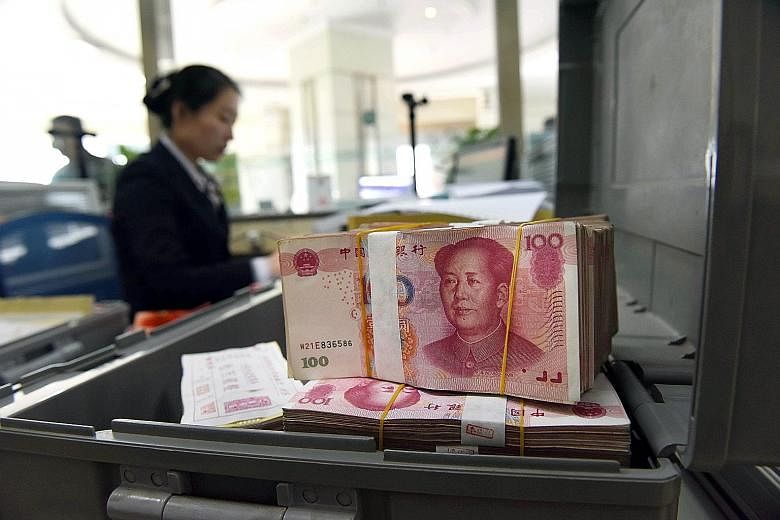The extreme jolt financial markets received from a weakening yuan this year is spurring speculation that central banks from Singapore to Australia will be forced to loosen policy.
The Monetary Authority of Singapore (MAS) may widen the band within which it guides the local dollar if the currencies of its major trading partners and competitors become "extremely volatile", said Mr Mirza Baig, the Singapore-based head of forex and interest rate strategy for Asia Pacific at BNP Paribas.
Central banks in Australia, Taiwan and India are most likely to respond by cutting interest rates, said markets strategist Mansoor Mohi- uddin at Royal Bank of Scotland.
Weaker-than-estimated yuan fixings last week heightened concerns that China's economic slowdown is accelerating, and triggered a global market rout.
About a year ago, foreign exchange markets were hammered when Switzerland surrendered its three-year-old cap on the franc against the euro and nations from Canada to Singapore unexpectedly eased monetary policy.
"The depreciation of the yuan is clearly creating large financial shocks," said Mr Baig. "One thing we are considering - although this doesn't enter into our forecast - is that the yuan becomes more of a free-floating, more volatile currency. Then local central banks are also likely to adopt a more laissez-faire kind of approach towards currency management."
The State Bank of Vietnam has already moved this year to a more market-based methodology in setting a daily reference rate versus the US dollar.
"They're now forced to change their currency regime to make it more in tune with day-to-day fluctuations in markets," Mr Baig said.
While BNP Paribas expects Singapore's central bank to maintain its monetary policy, there is a risk that it may widen its band "in response to elevated financial market volatility", he added.
MAS guides the Singapore currency against an undisclosed basket and adjusts the pace of appreciation or depreciation by changing the slope, width and centre of a band. It does not disclose details of the basket, the band, and the pace of appreciation or depreciation.
The yuan probably has the third-highest weighting in the basket, exceeded only by the US dollar and Malaysian ringgit, Mr Baig said.
"The more volatile and weaker yuan is set to be more of a risk to regional central banks' outlooks than higher (US) interest rates this year," Mr Mohi-uddin said.
In 1971, then US Treasury Secretary John Connally summed up the country's attitude towards nations bemoaning the dollar's gyrations when he said "it's our currency, but it's your problem".
President Richard Nixon's Treasury chief was rebuking other countries complaining about the United States devaluing its currency and quitting the gold standard.
Today, the phrase could be gaining relevance for China, Mr Baig said. "From the Chinese perspective right now, the yuan is my currency but it's your problem. That is kind of the reality for everybody else in our region as well."
BLOOMBERG

